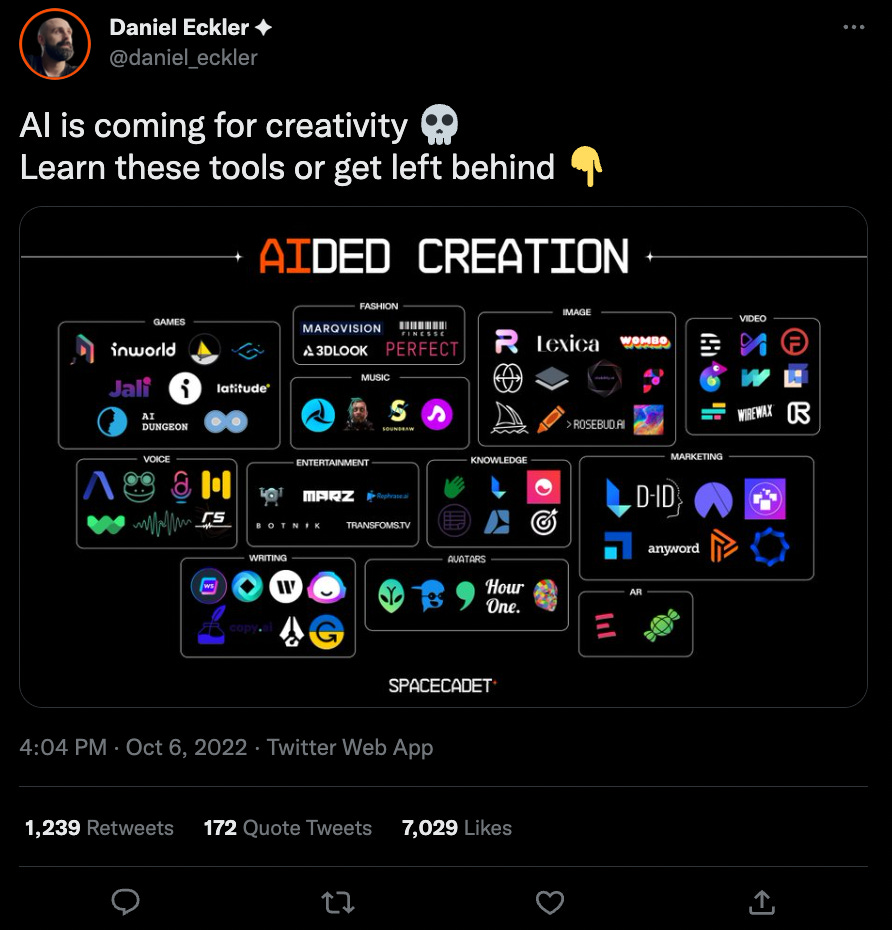Future Work/Life is my newsletter in which I explore ideas focused on the future of work and how to design legendary careers. Every week, I share something I’ve written, a few things I’ve enjoyed reading, and something great to listen to. If you find it interesting, please share it!
The Writing:
I've had many conversations over the past month in which I've discussed ways businesses can support people during a recession.
While it would be wonderful if those in the most financial need could just get a pay rise or living-cost-related bonus, it's unrealistic. The truth is that most businesses are already feeling the squeeze too. That isn't to say that plenty of leaders aren't wracking their brains about how to support their teams. They're just having to do it with limited budget and resources.
So here are a few ideas of alternative ways businesses can support people through these challenging economic times. While they won’t all put money in people's pockets straight away, they might at least allow them new opportunities to grow their careers and monetise their expertise.
1. Buy back holiday
I recently spoke to Christine Armstrong on the podcast, who told me she's spoken with businesses offering to buy back any holiday above the statutory minimum. Admittedly, this is an additional expense, but the obvious advantage is more work days. Just make sure the extra time is well-directed, and you don't drive people to burnout.
2. Reduce people's hours by 20%
Ok, so this isn't going to help those in immediate need of financial support, but in some circumstances, it may help them reduce costs – e.g. childcare and travel. More importantly, it unlocks one day per week to develop new opportunities for them to earn.
The question is how they do it, which is where the next couple of ideas come in.
3. Introduce (or increase) learning and development allowance
Again, this carries some financial cost to the business, but given the resources available for online training on-demand, this is a relatively small investment for a potentially significant return.
Giving people the time to invest seriously in their skills, as well as the chance to monetise them outside of their current employment, creates a massive medium to long-term opportunity for the individuals involved.
The benefit to the company is a more highly-skilled worker who's gaining experience outside that they can introduce back into the business on the four days they are working.
4. Adopt a new mindset on side projects
The notion of an employee having additional income streams has traditionally been taboo. In fact, it's in many people's contracts that they explicitly CAN NOT have other paid employment.
Time to shift mindset!
Having a more diversified approach to how you earn income and grow your career should be a priority for everyone. If you're a business leader that fears entrepreneurially minded people getting distracted by their other pursuits, then you're thinking about it all wrong. As I alluded to above, in my experience as a founder and CEO, those with other interests, particularly that earned them additional income, tended to have a more rounded view of the work they did for the business I was running. If you embrace this attitude and encourage them, not only do you get to take advantage of the skills they develop, they also tend to be more engaged with their work.
5. Take advantage of networks
It's all very well saying, "allow people to act entrepreneurially and develop additional income", but will they and can they achieve it?
The first step, of course, is encouraging it. No one wants to risk their job if it's not crystal clear they're allowed to develop a side project. More critically, though, they may not have the confidence or skills to get started. Formal training can help to an extent but don’t forget to lean on the power of your network.
Here are a few ways to work to do that:
You might have over-capacity in some parts of your business, but perhaps that's where others have gaps - how about a talent exchange?
What's the biggest obstacle to most people starting a side project? Getting started. Do you know someone who can come in and run a workshop to help remove their fear and help them build the confidence to take action?
Mentors can be great sounding boards and act as accountability partners, but not everyone is comfortable with asking for help. They may also not have access to the right people themselves. It doesn't cost anything to ask your network for support on their behalf.
None of these five ideas is perfect, but if there’s one takeaway for leaders, it’s to reconsider the meaning of a 'benefit'. Yes, benefits can offer an obvious financial gain or saving, but they could also represent the gifts of time, trust and belief in people to get a side project started. It might just benefit both parties.
With that in mind, I'll throw my hat into the ring to run a free one-hour online workshop on getting a side project started for the first business willing to prioritise this 'benefit' for their team who get in touch. Email or DM me on LinkedIn to register your interest.
Thanks for reading and have a lovely weekend.
Ollie
My book, Work/Life Flywheel: Harness the work revolution and reimagine your career without fear, will be published on 17th January 2023. You can pre-order your copy HERE.
The Listening:
Deep Work author Cal Newport has appeared on a couple of shows over the past week that are worth a listen if you’re interested in “how the pandemic deepened the digital communications morass; how autonomy without structure is bad for knowledge workers; native-remote businesses; the sociological and real estate implications of remote work; the 4-day work week; and what we can learn from software developers.”
Managing the future of work
Newport’s also got some fascinating thoughts about the changing role of workspaces, which I explored with Phil Kirschner on the pod a couple of weeks ago.
The Reading:
This article from the Washington Post explores why “U.S. workers have gotten way less productive” because “no one is sure why.” Apparently, “bosses and economists are troubled by the worst drop in U.S. worker output since 1947” in the midst of ‘quiet quitting’ stories, which I also discussed on the podcast with Jacob Morgan this week.
Wharton professor Ethan Mollick is full of interesting tweets, including this one about the importance of sleep.
And another interesting thread from Twitter, this one from Daniel Eckler, on how ‘AI is coming for creativity and the tools you need to learn (or you’ll get left behind).







